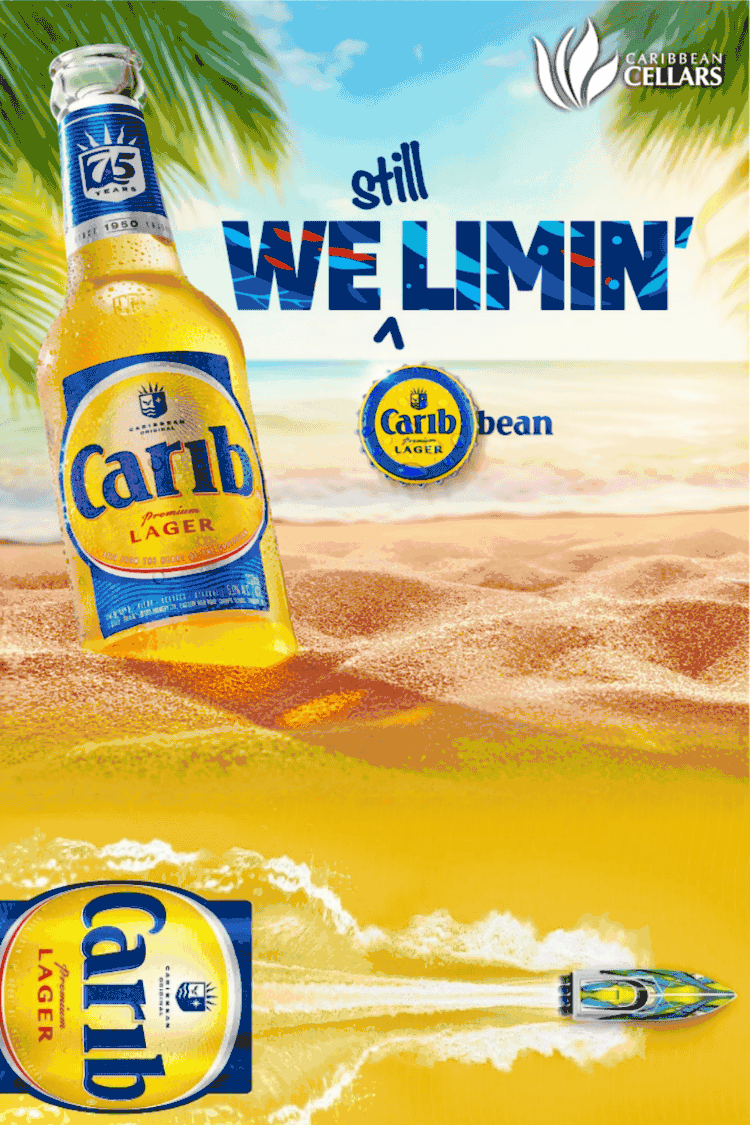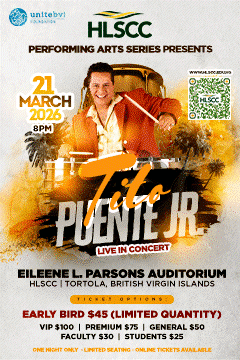Theodolph H. Faulkner: Unsung Protagonist of 1949 Great March
The Virgin Islands (VI) (British), on November 22, 2021, celebrated for the first time, The 1949 Great March and Restoration Day holiday that commemorates the historical event of 24 November 1949.
Theodolph Faulkner, the Bhimrao Ambedkar (Dalit leader) of the Anegadian people, was the unsung protagonist of the November 24, 1949 Great March. The March was a watershed event for VI history and the VI people. Quincy F. Lettsome, Ph.D., in Faulkner at the Front-The Demonstration of 1949: Its Beginning, Golden Jubilee, and Implications, labeled the March as, "In process of time, it was the flame that lit the path to constitutional, political, economical and social development during the better half of the twentieth century." Special thanks and gratitude to Janice Faulkner Vanterpool, daughter of Theodolph Faulkner, for her contributions in helping me pen this commentary.
Anegada (Drowned Island)
Anegada, the birthplace of Theodolph Faulkner, is approximately 15 square miles and lies 18° 44' N, 64° 20' W and 80 miles northeast of Puerto Rico, 30 miles east of Tortola (largest island, 21 square miles, in the VI chain with the capital city Road Town, the seat of government and the business and entertainment center of the VI) and 15 miles northeast of Virgin Gorda (8 square miles), the third-largest island in the VI chain.
Moreover, Anegada is flat and low-lying (highest point approximately 28 feet above sea level), characterized by limestone and coral (other islands are volcanic), and is the second largest and most sparsely populated (285, 2010 Census) of the major islands in the VI chain. Most of the population resides in the primary village, the Settlement. It is ringed by the 18-mile Horseshoe Reef (one of the largest barrier coral reefs in the Caribbean) and other reefs (reefs have snared and are home to hundreds of shipwrecks). It possesses miles of white sandy beaches, secluded and remote, geographically isolated, water-challenged, little subsoil, and moderately developed. It is home to a fertile conch ground and is the lobster capital of the VI. Before the emergence of tourism, fishing and subsistence agriculture (once had a cotton and shark industry) were the primary industries.
Until the mid-60s, the VI had limited budgetary resources, so support for Anegada was limited. Nonetheless, an outlying island, Anegada, didn't get its proportional share of available resources and support. In any event, Anegada was an almost forgotten and neglected island. Nonetheless, Anegadians, cast in the lower rung of the VI social caste system, are a proud, industrious, hardy, and self-sufficient by necessity group of Virgin Islanders. The preceding was Theodolph Faulkner pre-1949 Great March Anegada.
Theodolph Faulkner
Theodolph Halburn Faulkner, aka TH, Dolph, and Champ, was born on 18 August 1914 (passed away on 30 July 1989) to Joseph Bernard Whitmore Faulkner and Marie V. Vanterpool of Anegada, VI. He married Ismay Ione Faulkner. The union produced four children, viz, Verna Faulkner White, Judith Faulkner Vanterpool, Veronica Faulkner Fahie, Landon Faulkner, and 12 grandchildren. He was educated at the Anegada Methodist School, worshipped at the Anegada Methodist Church, and traveled and resided in Aruba, New York, Dominican Republic (Santo Domingo), and Curaçao. He was a business entrepreneur (retail shop), fisherman, and politician. Hobbies include reading (vociferous reader), unique talents---debating (gifted debater) and organizing events. Politically, Dolph was a progressive, social activist, and a populist, speaking out against inequality, inequity, and injustice against the oppressed, forgotten and neglected, and marginalized Anegadians and other Virgin Islanders at the bottom rung of the VI social caste system. He was the Bhimroe Ambedkar and the Martin Luther King Jr of the Anegadian people; he was a national hero, a patriot, and a fearless warrior.
Moreover, Charles H. Wheatley, OBE, Ph.D., is an author, preeminent educator, former Permanent Secretary, former President of Hamilton Lavity Stoutt Community College (HLSCC), and a profoundly knowledgeable reservoir on VI history, heritage, and culture. He, a reliable source, indicated that around the fall of 1949, Dolph chartered a seaplane to transport his pregnant wife (Ismay) to the Cottage Hospital in Road Town (capital of VI), Tortola, VI, for medical care; the Cottage Hospital was the only hospital in the VI.
In time, Dolph got agitated, frustrated, and disgusted with the doctor and the presumed poor care and service his wife was receiving. This supposed level of poor service compounded his raging frustration with the overall level of inadequate social services that the people of the VI were receiving. Ragingly frustrated, he acted with the bold courage of his conviction. As such and for many nights and with no fear of arrest, he, lantern in hand, strutted out to the marketplace (now Sir Olva Georges Plaza) and waxed about the level of poor service and a litany of other grievances about government services and policies.
Other supporters shared his frustration but did so from the sideline and in the shadows, fearing arrest. Like national hero Noel Lloyd who busted on the scene later in the 1960s against the Wickham Cay and Anegada debacle, he demonstrated the uncommon boldness and courage to stand alone against the rising tide, the tsunami force of the colonial authorities. The authorities didn't arrest Dolph at first. Consequently, supporters came off the sidelines and out of the shadows and joined him to fight for social justice, equality, and equity; civil rights, greater participation in the political process, freedom of speech, etc. Why was there fear of being arrested?
The Commissioner of the VI was omnipotent and could use his dictatorial powers to direct the police to arrest people, i.e., for being a nuisance, disturbing the peace, and so on. Freedom of the press, true democracy, freedom of speech, etc., did not yet reach the VI. And true to form, Commissioner John A. C. Cruikshank, threatened by the growing peaceful movement, issued an order against holding public meetings at the marketplace or anyplace else. And violators would be locked up at Her Majesty's Prison. Concerned, Father Chiron Williams Forsythe came to Dolph and growing supporters rescue by offering the St Georges Schoolhouse as a meeting place. And so, to avoid arrest, Dolph and other patriotic supporters shifted their social activism indoors to collaborate, strategise, and develop tactics for the next course of action.
The 1949 Great March
Meeting at the St Georges Schoolhouse and perhaps other places indoors lessened the fear and probability of their arrest. Huddled at these indoor meeting places, Theodolph H. Faulkner, Carlton de Castro, Isaac Glanville (Glanny) Fonseca, and presumably others engaged in in-depth planning for the next course of action. Consequently, the group settled on a march---The 1949 Great March---along Main Street, Tortola, VI, to Commissioner John Augustus Cockburn Cruikshank's office at Government House to present him with a petition seeking redress for a myriad of concerning social issues. Listed below is an excerpt of the petition:
"We the people of the British Virgin Islands, theoretically a free people by reasons of the fact that we are supposed to be British subjects and citizens of the British empire, are today in numbers assembled as a Demonstration of Protest against certain conditions under which we have wither to been forced to live...One of the purposes of this Demonstration today is for us to achieve a measure of political freedom for ourselves and the generation of the future."
On November 24, 1949, 1,500 of the estimated 7,000 population from the length and breadth of Tortola and outlying islands, viz, Virgin Gorda, Anegada, etc., stormed into Road Town to participate and engage in the March. The M/V Joan of Arc, the VI's first purpose-built passenger ferry, played a crucial role in transporting people from Anegada, Virgin Gorda, East End, and West End to partake in the March.
Further, marchers also stream into Road Town on horses, mules, and donkeys to participate in the March. Before the March commenced, a religious service held at the Old Recreation Ground. Activated, energized, and peacefully boisterous and armed with placards, signs, and banners, marchers starting at the Band Stand strutted, pranced, chanted, and marched with focus and purpose along Main Street. The energised marchers stopped at the Bungalow, where Dolph boldly and courageously stood alone many nights to air his grievances. Arriving at Government House, the march leaders delivered the petition to Commissioner John A. C. Cruikshank, who received the petition and promised to forward the complaints to his superiors at the Foreign Office. The March was a watershed event marking VI's political, social, and economic advancement.
Fruits of 1949 Big March
Typically, marches or protests against the disaffection of the governing and treatment of colonial officials' treatment and policies were ignored and didn't bear fruit. The 1949 Great March led by Theodolph Faulkner bore fruit. In 1901, the Legislature of the VI was dissolved, and power transferred to the Leeward Islands Federation. However, in 1950 and due to the Great March 1949, the Legislature was reinstated - re-devolving power from the Leeward Islands Federation back to the Legislature. Additionally, the first modern-era constitution allowed locals to vote directly for four (4) elected members, albeit voters supposedly had to be landowners. Presumably, Mc Welling Todman, QC, viewed the 1950 constitution as an instrument minimal in its intent and effect.
Nonetheless, on November 27, 1950, a general election was held for four at large territorial seats. Voters elected Isacc Glanville Fonseca, Howard R. Penn, Carlton L.E. de Castro, and John C. Brudenell-Bruce to the VI Legislature. However, Theodolph Faulkner, the catalyst and the change agent, was glaringly absent from the group of elected. It begs the question was he not elected because he was not from the elite class but from, perhaps, an outlying island and from the lower rung of the VI social caste system or because the candidates' standing for election had to be landowners?
Moreover, the 1954 Constitution and Election Act provided for the first-time universal adult suffrage and allowed for the first-time districting, dividing the territory into five (5) districts; Road Town allowed two representatives. In the 1954 election, Theodolph Faulkner competed and elected as 5th District representative; Leslie F. Malone, 4th District representative; Edwin W. Leonard, 3rd District representative; Isacc G. Fonseca and Howard R. Penn, 2nd District representatives; and Wilfred Smith, 1st District representative. Faulkner competed again in the 1960 general election and won as the 5th District representative. Other elected members of the 1960 general election included: H. Lavity Stoutt, 1st District, Howard R. Penn, and Isaac G. Fonseca, 2nd District, Ivan Dawson, 3rd District, and Leslie F. Malone, 4th District.
Recognition and Legacy
Undoubtedly, Theodolph Faulkner is a son of the soil, a national hero, the protagonist, and the driver of the 1949 Great March. His bold, audacious, unselfish, and fearless actions were the tip of the spear that ushered in democratic, political, social, and economic changes. These changes improved VI's progress, improved standard of living and quality of life, and improved Virgin Islanders' lives and livelihoods, putting the VI on the path for self-governing, albeit partial self-governing. Moreover, outsiders once viewed the VI as the backwater of the West Indies. Today, various agencies recognized the VI as having one of the highest standards of living, quality of life, and per capita income (~$34K) in the region. Dolph's action contributed immensely and was instrumental in driving the change. He set the personal example for social activism and direct action in effecting change. His personal example and selfless sacrifice are exemplary and very worthy of emulation.
Nonetheless, though he was the protagonist, leader, and face of the movement, he didn't always get top billing and recognition for his effort. He graced a postage stamp, the Administration Building in Anegada named him, and a small museum in Anegada operated in his honor. Still, more can and must be done to recognize and honor him; he should have had his flowers while physically with us. Nevertheless, for starters, the 1949 Great March should be on the curriculum of and taught at all private and public primary and secondary schools and offered as a course at HLSCC; I cannot recall the 1949 Great March being taught in school during the VI school days. Erect a monument to him at the Sir Olva Georges Plaza, the birthplace of the 1949 Great March. Some local roads(s) and other facilities in the territory should carry his name. A Theodolph Faulkner, Community Service Award should be created and awarded annually to an unsung hero. And as his native Anegada continues to grow and develop, places, buildings, roads, etc., should be named after him.
Edgar Leonard is a native Virgin Islander, an amateur freelance writer, and a Florida A & M University, graduate.







1.png)

_04.gif)
1.png)
2.png)
_03.gif)










2_01.jpg)














11 Responses to “Theodolph H. Faulkner: Unsung Protagonist of 1949 Great March”
- Do you know when it came to be called the GREAT March? I wonder if addition of GREAT is just a very recent invention? I'd be interested to know when it was first referred to in that terms in a publication like a local newspaper or the like.
- You write of "the tsunami force of the colonial authorities", that some who supported the protests in 1949 "feared arrest", that Mr. Faulkner had "no fear of arrest". You are painting a picture suggesting the VI was rather like Communist China where people had to keep their head down for fear of arbitrary imprisonment etc. Is there any evidence whatsoever of that actually being the case? How many VI residents were arrested and imprisoned for expressing their opinions in 1949?
- You write of "freedom of the press, true democracy, freedom of speech, etc." had "not yet reach the VI." How was freedom of speech denied to people in 1949? Were any newspapers forcibly shut down? Or radio stations? Do you think true democracy has arrived here, even now? When people like my children are born here and are denied all rights because their parents are migrants? Did you know that my children will never be eligible to stand for election in the House of Assembly even if they live here for the rest of their lives because their parents were not born in the VI? Those who presided over the recent celebration ought to be ashamed of what they have done.
We're they wanted for criminal offense in their homeland...why not give thanks daily for being hidden and living well....what have they given to the VI.
However, when one migrates, one has to abide by the rules of the road, rules of the game. Clearly,
you want things to happen on your timeline. The BVI is a small 59 square mile dot in the Caribbean Sea which does not have Jus Soli, automatic birthright citizenship. It has a process in place for gaining citizenship. People know or should have known or have known and now want to ignore the rules before emigrating their homeland and immigrating into the BVI. The BVI is not the US, Canada, UK etc; they can tolerate and accommodate larger migration. It is small and has and should effectively manage migration commensurate with its needs to avoid rapid and disruptive social upheavals. It would be poor governance for government to just fling open the borders so that whoever want may come. That will be chaos and mismanagement.
Moreover, there are over 100 different nationalities in the BVI and I’m confident that those homeland have immigration rules commensurate with their needs and circumstances. It is not that people migrating to the BVI or children born in the BVI do not attain citizenship. It is a process. As recently as 2019, the VIP hurriedly made a political decision and granted thousands Belonger Status. Not averse to the granting of Belonger Status. Nonetheless, the action and its impact should have gone through a comprehensive analysis.
True, the process may not meet the timeline of some and coming to the BVI is voluntary. Some may argue that they build the BVI. Yes, some may be exploited but people are paid for their labour. And yes their labour contributed to the growth and development of the BVI. Yes, immigrants presence provide other benefits.
We seem to pay lip service to the magnitude of the fight, the struggle of Theodolph Faulkner, Noel Lloyd and others for equality, against exploitation, social hierarchy etc. We lukewarmly recognize and celebrate on birthdays and dates of anniversaries and not much more. In December 2021, only a handful of people know a little about the 1949 Great March, and Noel Lloyd and Positive Action Movement. Both are significant and watershed moments and events in BVI history.
E. Leonard animated ( E. Leonard is a humble soul so he is probably wincing with my characterization) national hero Theodolph Faulkner. Often we hear that Mr. Faulkner brought his pregnant wife from Anegada to Tortola to the hospital. And not thrilled with the services provided by the doctor went out nightly to the market square to complain. Eventually, a march was organized in 1949, which resulted in the legislature being reinstated and with a new constitution in 1950. E. Leonard talked about those things and did something more. He talked to the family, and about Faulkner, the man. And though I was not born yet, I vicariously experience being there in 1949. Let’s experience, cherish, recognize and learn lessons from our national heroes. As we go through our daily business, hustle, their presence, images etc should be omnipresent.